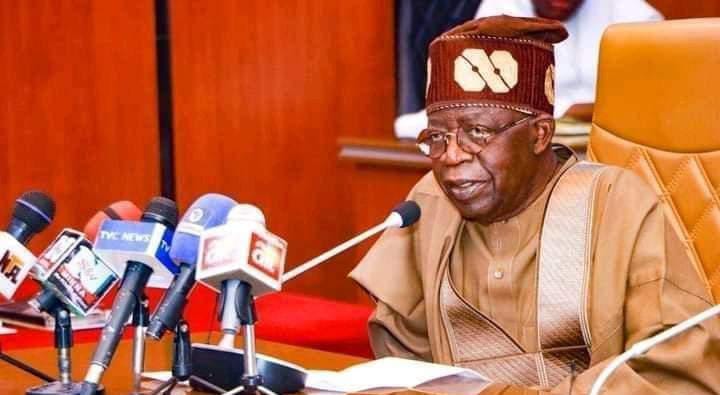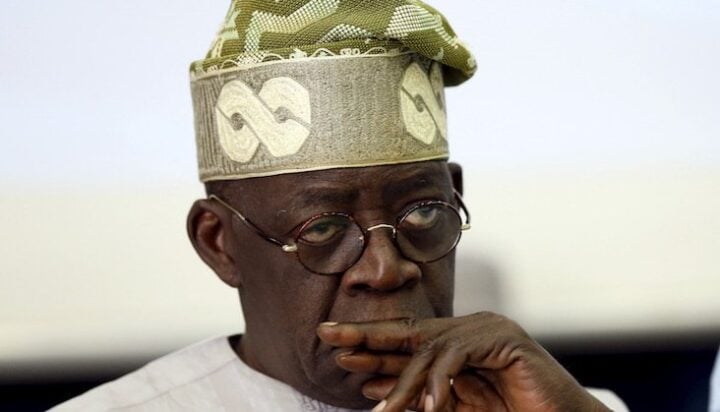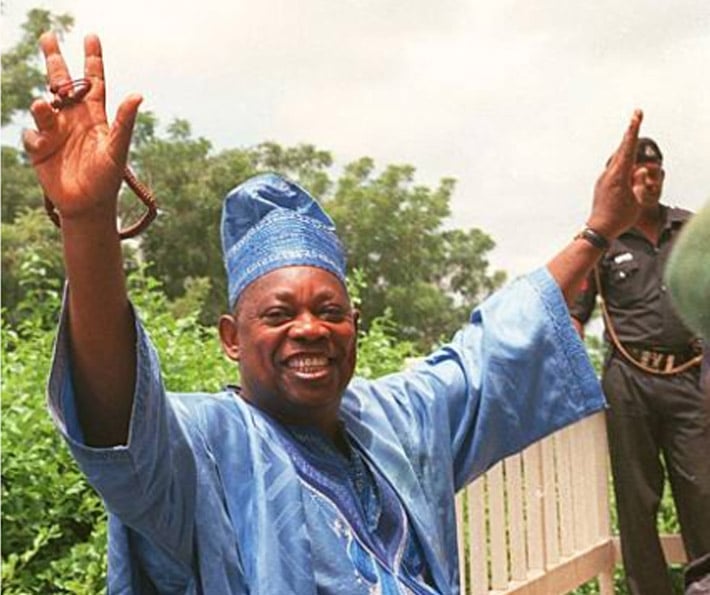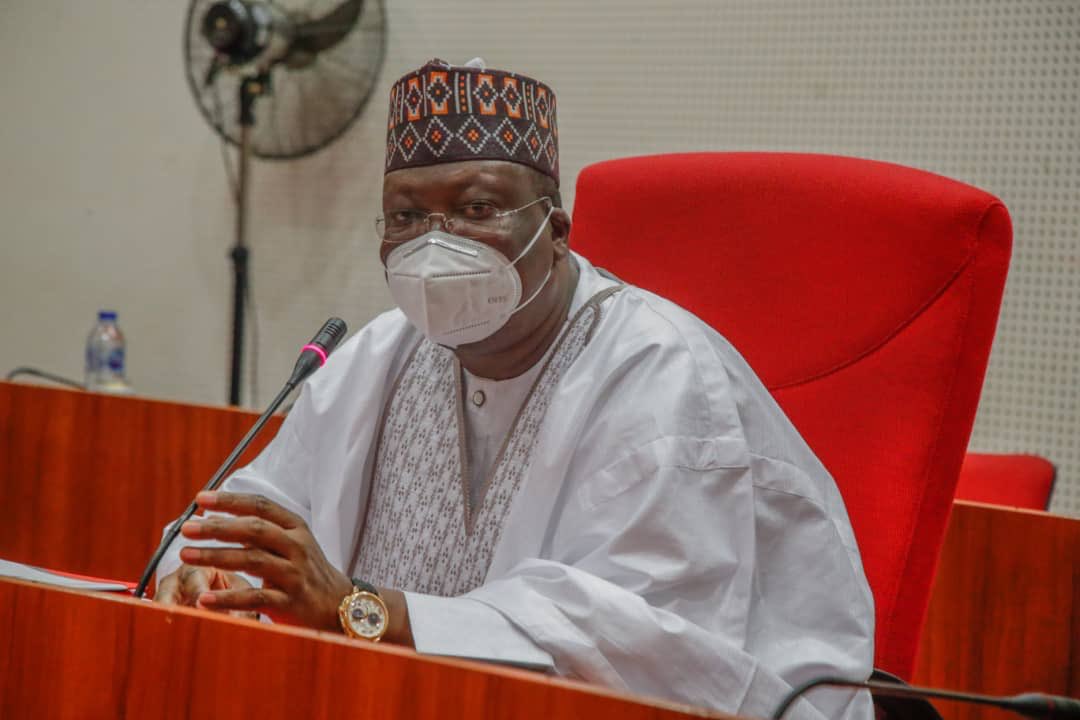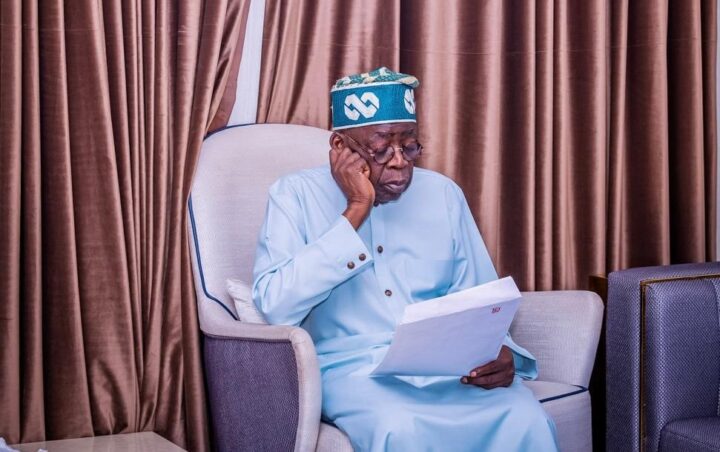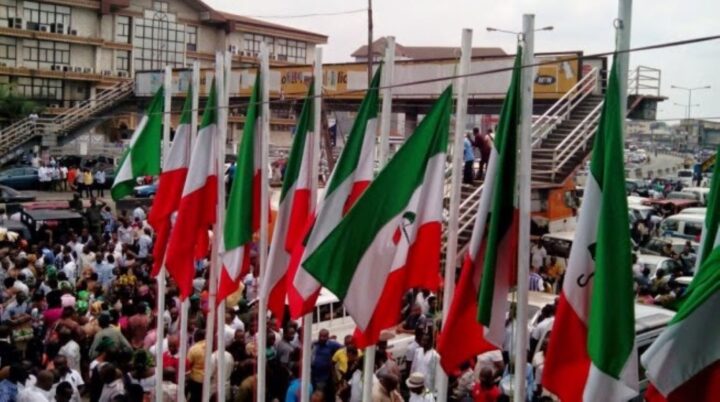That the All Progressives Congress (APC) flag bearer, Asiwaju Bola Ahmed Tinubu, is exactly where the party’s last presidential candidate President Muhammadu Buhari was when he got the ticket eight years ago, shows just how our politics has stagnated, if not regressed.
After Buhari won the APC ticket in December 2014, the next major hurdle was getting a running mate. In what appeared to be a breach of the understanding he had with Tinubu to be his running mate before the election – and on the basis of which Tinubu moved heaven and earth to support him – Buhari changed his mind at the last minute.
He broke his promise, even before the electoral contest. After pocketing the ticket, Buhari told Tinubu, with a heavy heart, that in spite of himself, he had been advised that a Muslim-Muslim ticket would be a disaster for the pair and the party.
Tinubu didn’t agree, but the rest, as they say, is history.
Advertisement
That history is in replay not because it was inevitable, but largely because Buhari is leaving a legacy of division, intolerance and identity politics, the kind of which has only a few comparisons in Nigeria’s recent history.
Let me be clear. Buhari did not introduce identity politics into the country. Nor is identity politics a peculiarly Nigerian thing. On his watch in the last seven years, however, ethnic and religious politics have taken on salience and frequency hardly experienced before or even thought likely.
It’s true that the redefinition of apostasy by Boko Haram has infused a deadlier strain in religious attacks. But it’s just as probable that Buhari’s tentativeness has been unhelpful.
Advertisement
Religiously motivated violence has grown from a handful of perfunctory incidents into a state of permanent siege, claiming dozens of lives, especially in Kaduna, and sundering once-peaceful neighbourhoods and communities. Christians, Muslims and those who are neither are hurting because all have been caught in the crossfire. The recent atrocity at Saint Francis Catholic Church, Owo, Ondo State, which claimed at least 40 lives and left many more injured, has further bruised already delicate religious sensitivities.
It is in this fraught climate, more complicated and fragile than it was when Buhari rejected Tinubu as a running mate on religious grounds, that Tinubu would have to decide whether he maintains his position of eight years ago that a Muslim-Muslim ticket after an outgoing Muslim president, still doesn’t matter. On top of that, Tinubu is running against a Northern Muslim who, in spite of his shortcomings, would be vigorously promoted in conservative circles up country as “our own Muslim”. It’s a serious matter.
I laugh at those who say it’s a simple choice or that concerns about it are irrational. To justify this position, they even go on a tour of Europe and the US for apples to compare with Nigeria’s oranges.
I think it’s fair to say that Nigeria is not what it was in 1979 when Obafemi Awolowo, a lawyer, chose another lawyer and Southerner, Philip Umeadi, as his running mate. Or in 1993 when MKO Abiola, a Muslim, picked Babagana Kingibe, a Muslim, as his running mate, and still won the presidential election, later cancelled by the military government of General Ibrahim Babangida.
Advertisement
Yet, this current predicament could also be a turning point, an opportunity for Tinubu to show that out of the ashes of this moment, it is possible to build a future in which citizens would be safe and secure, and in which they would all have a fair shot irrespective of their religious, ethnic or political identities.
To do this, however, he has to win the election first. And to win the election, Tinubu might find himself arguing, like Deng Xiaoping, that white cat or black cat, he needs a cat that can catch mice. But it’s an argument that can – and should – be made with a sensitivity that resists hubris.
The hard truth, from Nigeria’s current political maths, is that the Deng cat – one that can give the Peoples Democratic Party (PDP) candidate, Atiku Abubakar, a run for the Presidency – is hardly in the Christian lair, North or South.
I honestly wish that in a country plagued by very serious problems of insecurity, poverty, brain drain, unemployment and broken infrastructure inflicted on us largely by persons who wear religion on their sleeves, we can look for competence, capacity and character; that the question would be, who’s the best person for the job, and not if he or she is wearing faith on a car bumper. We’re in trouble.
Advertisement
A document from a research firm, RMP for Dubai Expo 2020, showed that whereas Nigeria was one of the 10 top destinations in Africa for investment in 2014, second only to South Africa, Nigeria disappeared from that list in 2021. Egypt, the new tourist destination of the political elite, has moved from sixth to first spot. Key metrics of well-being and development have deteriorated sharply.
Yet, we’ll have to play the cards we’re dealt. Emotions, experience and a raft of Nigeria’s notoriously expedient conventions make a Muslim-Muslim ticket hard to contemplate at this time. But the voting data suggests that it would be nothing short of political suicide for APC to choose a Christian as Tinubu’s running mate.
Advertisement
Tinubu didn’t come all the way, so close to “his turn”, only to hang himself on a sectarian pole. If he gets it wrong – as he’s almost certain to do by choosing a Christian running mate – the Christian Association of Nigeria (CAN) and others urging that choice on him today would be among the first to blame him. They would even mock him that he made others president, but himself he could not make.
Of course, this does not also mean that just about any Muslim would guarantee APC victory. Three serving governors – Nasir El-Rufai (Kaduna), the habitual polariser who manoeuvred the 10 Northern governors to go south for a presidential candidate; Abdullahi Ganduje (Kano), one of the earliest Tinubu cheerleaders; and Atiku Bagudu (Kebbi), who has been praised for his role in organising the APC primary – have been tipped as front runners.
Advertisement
But so, too, has former Borno state governor, Kashim Shettima, whose recent extraordinary defence of Tinubu has made him a man to watch on the national stage. As of Wednesday, party insiders were indicating that Shettima is a sure bet, though he is from the north-east. Choosing him would divide the vote in Atiku’s North-East base and shift the battle to the north-west. Here, former Kano state governor Rabiu Kwankwaso’s party, the NNPP, could be a disrupter, but the voting pool is larger.
APC governors, especially those from the zone, are pressing for one of their own – a sitting governor. With the mutual acrimony and backstabbing among this clan, however, not to mention their individual K-leg, controversial reputation and mixed record of performance, Tinubu would find a choice among North-West governors a mountain to climb.
Advertisement
Let’s return to data. In Nigeria’s complex statutory electoral system, to win, a candidate not only requires a quarter of the total votes in 24 states, he also has to get the highest number of votes countrywide, making states with large voter bases the crucial deciders.
The Muslim-dominated North-West, with 20 million registered voters or 24 percent of the total voting population as of 2019, is the country’s largest vote bank. According to Researchgate.net, Kano, Katsina and Jigawa (three of its leading vote banks), have over 80 percent Muslim population, the exception being Kaduna.
In the last six general election cycles, going back to 1999, the best performance of a Southern candidate in the North was 23 years ago, when two Southerners – Olusegun Obasanjo and Olu Falae – were on the main ballot. Yet, northern sympathy for the winner, Obasanjo, at the time was largely because the region was the candidate’s political orphanage.
From 2003 when Buhari entered the presidential race and ran until he won the election on his fourth attempt in 2015, no Southern candidate had more Northern votes than he did; not even when he lost the election in his three previous attempts.
In the current vice-presidential race in the APC, apart from Shettima who is from the north-east, the other contenders – El-Rufai, Ganduje, Bagudu and even late entrants, Abubakar Malami and Hadi Sirika – are Muslims from the north-west.
True, it’s not the vice president, but the president that is on the ballot. In fact, in a lamentation to his wife, the first US Vice-President, John Adams, described the position as “the most insignificant office ever the invention of man contrived.” But in a race as tight as the next one promises to be, the choice of a running mate could make a difference.
And for Tinubu, just out of a bitter and fractious primary, what he does and how, will significantly affect the APC’s cohesion, especially with a long list of entitled heavyweights waiting to complicate the party’s misery, if they lose out.
Yet, it’s only if he makes a winning choice that he can make a room in the tent for everyone, including the aggrieved.
Ishiekwene is the editor-in-chief of LEADERSHIP
Views expressed by contributors are strictly personal and not of TheCable.
Add a comment

